Whose Line Is it Anyway?
While I like to be credited for words I've written, I'm not so sure I'm interested in quoting myself to inspire others.
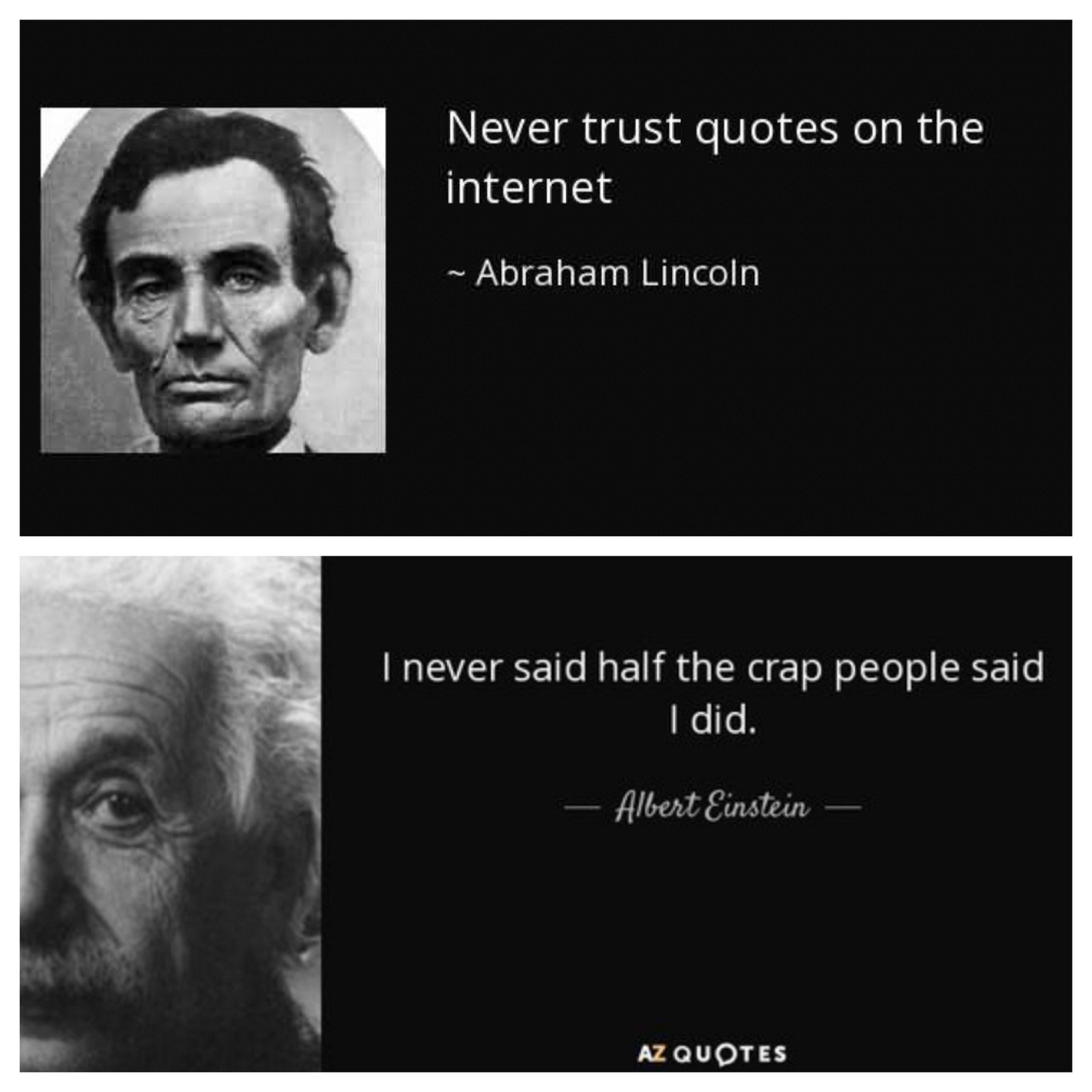
A tale of two quotations: There’s one quote of mine circulating around the internet for which I wish I earned $1 per “like” or re-usage; there’s another emblazoned on a sample pendant, from which I stand to earn some money, but I’m reluctant to release it out into the world.
The first, the highly-circulated quotation, comes from a tweet I posted on August 6th, 2022:
My most viral tweet ever, it has so far been “liked” more than 111,330 times and retweeted more than 11,1000 times. Over the past 13 months it’s been picked up by countless influencers of all stripes on Instagram, some of whom tag me in their posts, others of whom do not—friends tag me in those when they come across them, or forward them on to me. The Instagram memes garner thousands of “likes” and reposts, too.
Now the line has shown up in someone else’s newsletter—something that was pointed out to me by an Oldster Magazine subscriber, not the newsletter writer.
While it was just a tossed-off thought, I’m pissed that other people are getting mileage and/or possibly pulling in cash—directly or indirectly—from my words when I am not. Each time I spot the quote on one platform or another, I find myself trying to imagine a way to reverse engineer the situation so that I have generated a cool $111,330 (or more!) for myself with those 24 words. From there I daydream about what I’d do with the money…get the house painted…fix the upstairs bathroom…take a vacation…trade in my 2010 VW for a hybrid or electric car…
On the other hand, there’s quote #2, from which I could earn some bucks, if I can overcome my reluctance toward quoting myself. The line is so banal, so generic, I barely feel entitled to call it my own:
It’s never too late to find your way.
It’s from my memoir, which is, broadly, about belatedly finding my way in life after first getting lost an awful lot. The sentiment has been paired by a jewelry company with one of the crayon drawings of mine that I included in the book, this one a compass.
Of course the jewelry company asked first. They regularly partner with much bigger authors like Patti Smith and Cheryl Strayed, and approached me a few months ago about partnering on some pieces. I was and remain flattered, and I really like the people behind the brand.
I am totally down with the Oldster nameplate necklace we’ve decided to go forward with. (So down with it I haven’t once taken off the sample they sent me last month.)
But I feel iffy at best, queasy at worst, about having them produce the compass/quote pendant, of which they’ve made a really nice sample, with a spinning orienteering arrow and everything.
I mean, I’ve got as raging a case of impostor syndrome as the next writer, but quoting myself on jewelry just takes it all up to an unbearable level.
I brought this up in a meeting with the jewelry company, and they suggested leaving my name off could be a solution. I’ve given that some thought.
But then what happens if those eight admittedly banal and generic words get picked up by someone else who goes and makes a fortune off them, while I just sit here in a house with the paint peeling off of it and a bathroom with crumbling tiles, never going away on vacation, and continuing to drive a 13-year-old car whose interior roof lining is falling down and can’t be replaced? I’d be so pissed!
***
This has all made me think about Elizabeth Appell, the woman whose fragment of a poem I had tattooed onto my arm in 2012 under the common misapprehension that the words were written by Anaïs Nin. Surely you’ve come across this phrase on candles, mugs, key chains, bookmarks, pendants, and all other manner of inspirational doodads:
And the day came when the risk to remain tight in a bud was more painful than the risk it took to blossom.
Four years after I had that inked onto my arm in an attempt to inspire more courage in my writing, Appell came forward to publicly claim that stanza from her poem, “Risk,” and I interviewed her about it. She told me that back in the ‘70s—when she went by “Lacy Bennett” and was working as a publicist for an adult-ed program in California—she’d added the line to a flyer meant to inspire grownups to go back to school, but didn’t attribute it to herself, or anyone. Clearly somewhere along the line someone else picked it up, misattributed it to Nin, and started cashing in on Appell’s words. Many other someones followed suit.
Appell said that for a long time she felt apprehensive about outing herself as the true source of that thought. It made her uncomfortable taking credit for a line that so many others had taken as a sort of inspirational mantra. It was only after she attended a friend’s book event, and the friend began her reading with the stanza, attributing it to Nin, that she finally decided enough was enough. She reached out to The Anaïs Nin Foundation with what evidence she still had, and with her former boss vouching for her, and set the record straight.
While taking that step made Appell feel empowered, the truth hasn’t caught up with the rest of the inspirational doodad-manufacturing world, nor its customers—if you search those 23 words of Appell’s in Google Shopping, you’ll see there’s a whole cottage industry around this misattributed quote. And it hasn’t made Appell any richer.
***
I’m going to sit with this choice a little while, but right now I’m leaning toward not having the compass pendants produced even though I think they’re cute, and just going with the Oldster nameplate necklace.
I’m also planning to either get off Twitter (er, X) or delete all my tweets by 9/29/23, when the company’s new terms of service kick in, allowing them to use whatever you write on the platform to train their artificial intelligence bots, or in any other way they choose. Even worse than the thought of some mental health influencers using my words for their own gain while I reap nothing from them is the thought of Elon Musk doing so.
In other news…
I was thrilled last week when “The Source Years: My decade at the hip-hop bible,” an Oldster Magazine essay by
, was featured in Don Van Natta Jr.’s The Sunday Longread newsletter, chosen by Jason Fagone. It also provided the quote of the week.Re: last week’s post here, my lawyer and I are still debating how to proceed. A part of me is reluctant to tangle in any way with those attention-seeking fuckers (both the interviewer and interviewee), who have misconstrued freedom of speech with a right to say whatever disparaging things you want about other people in the press, regardless of whether they’re mischaracterized or untrue.

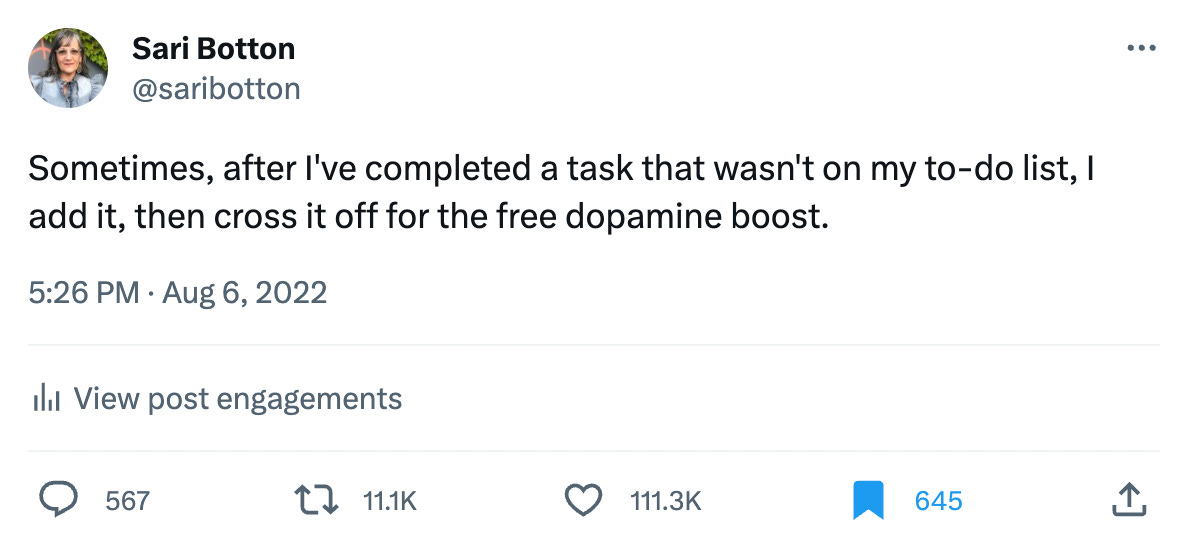
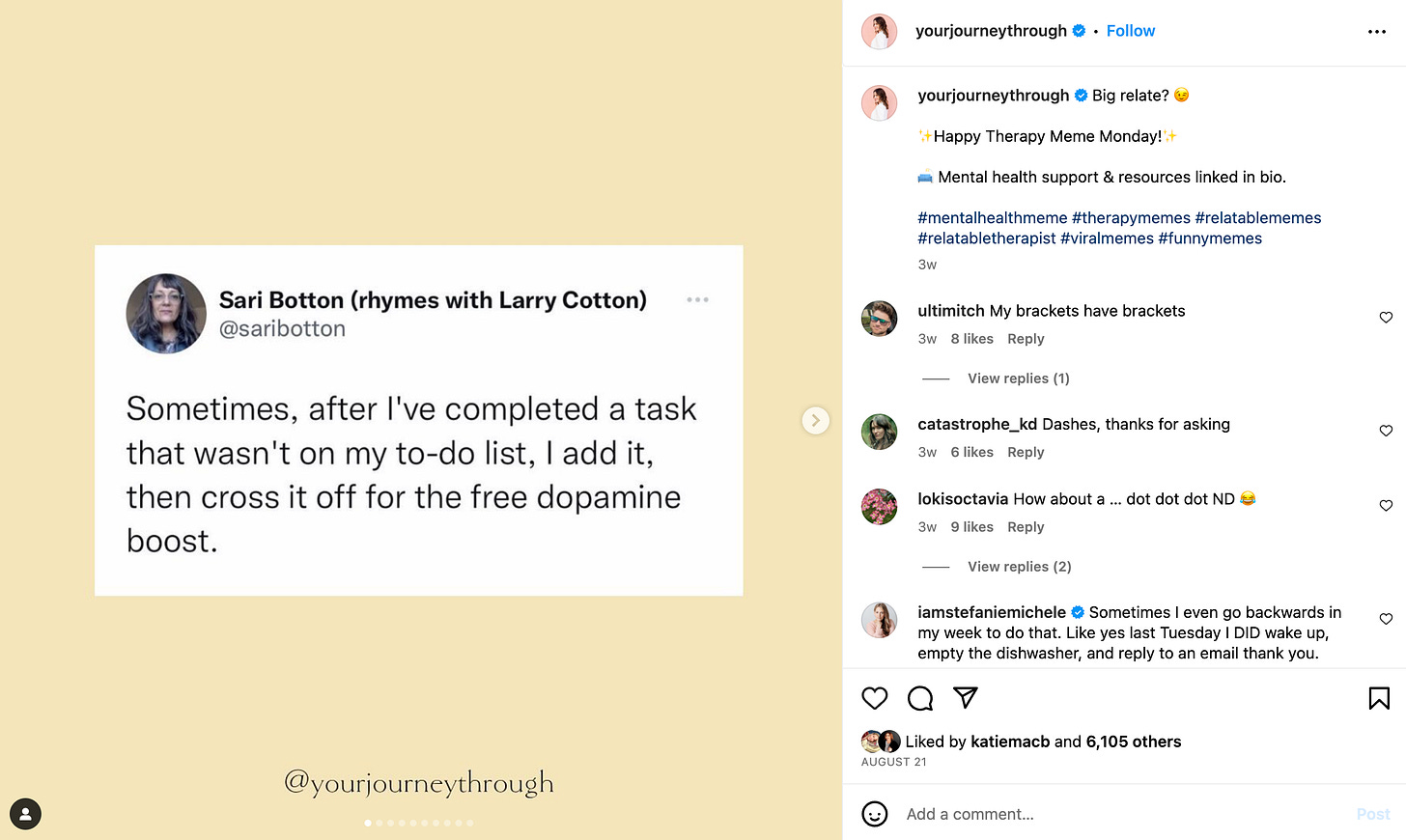
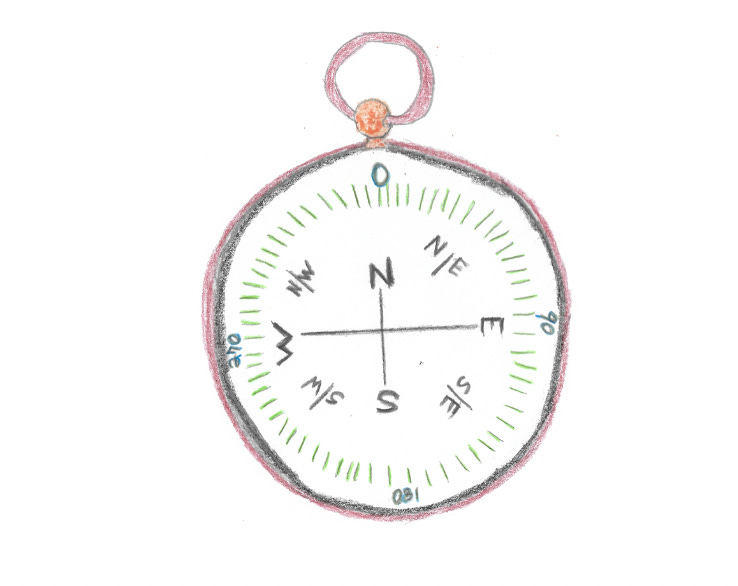
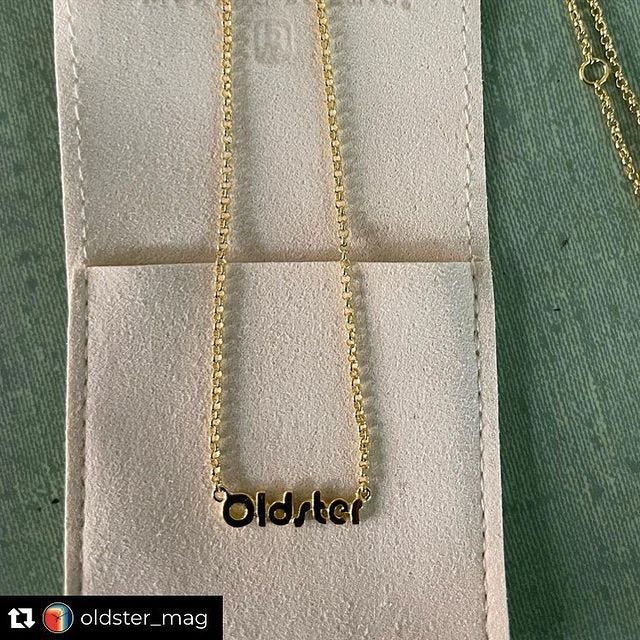
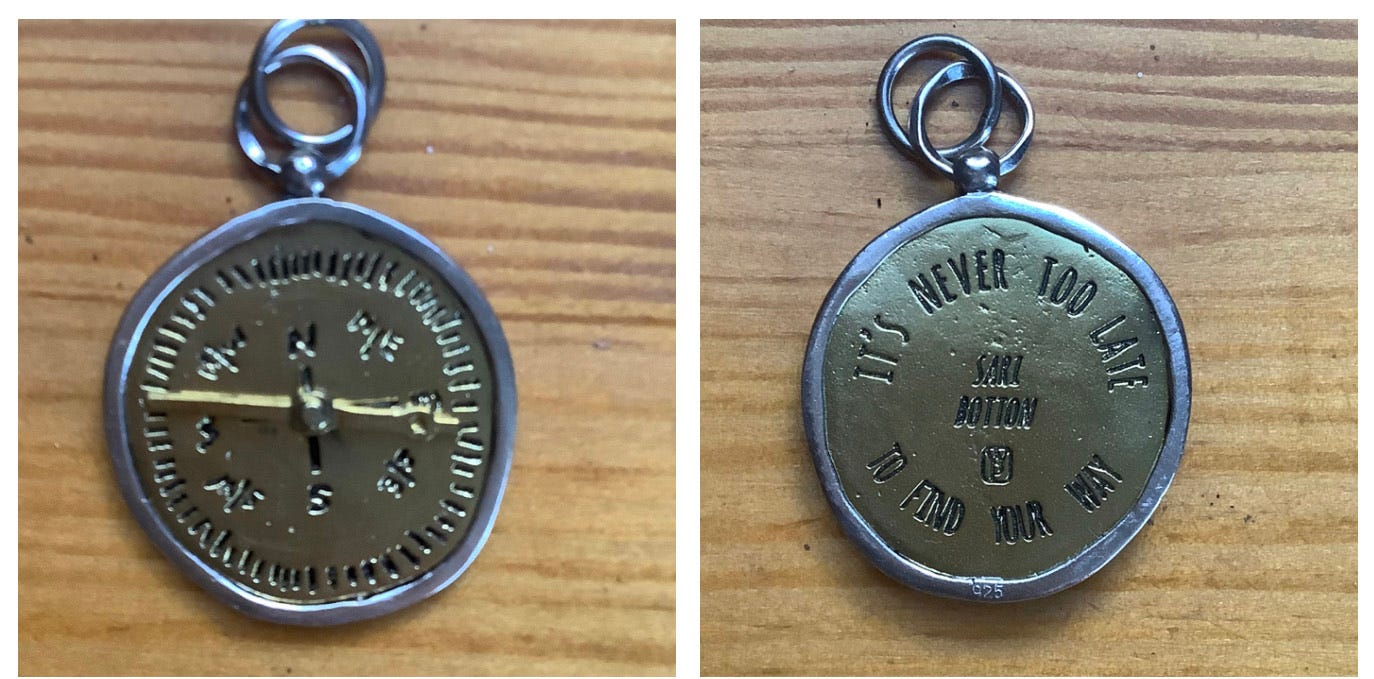
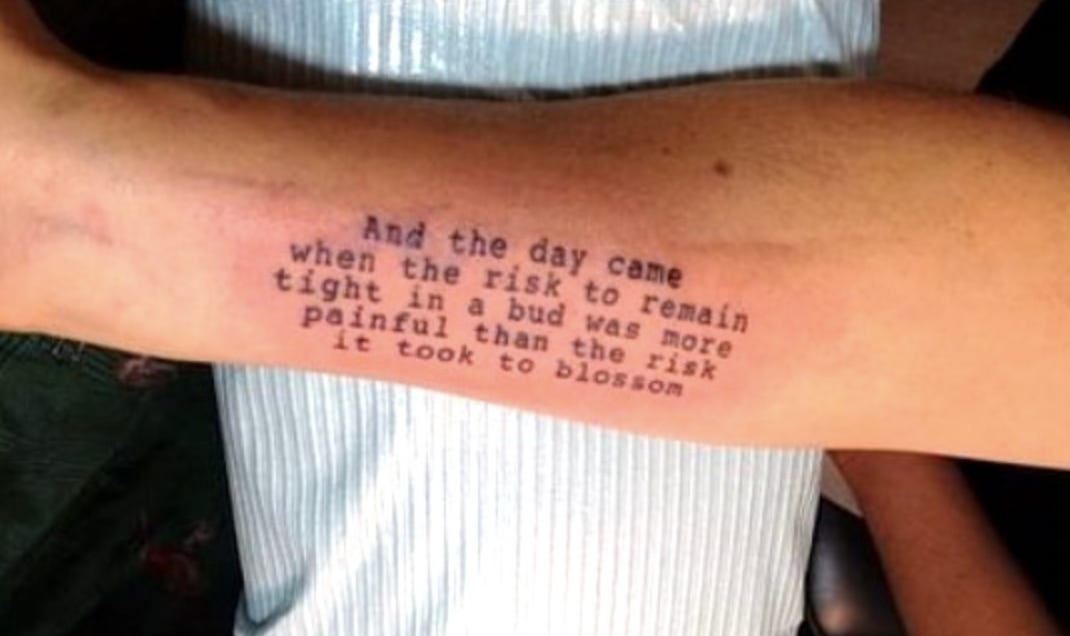
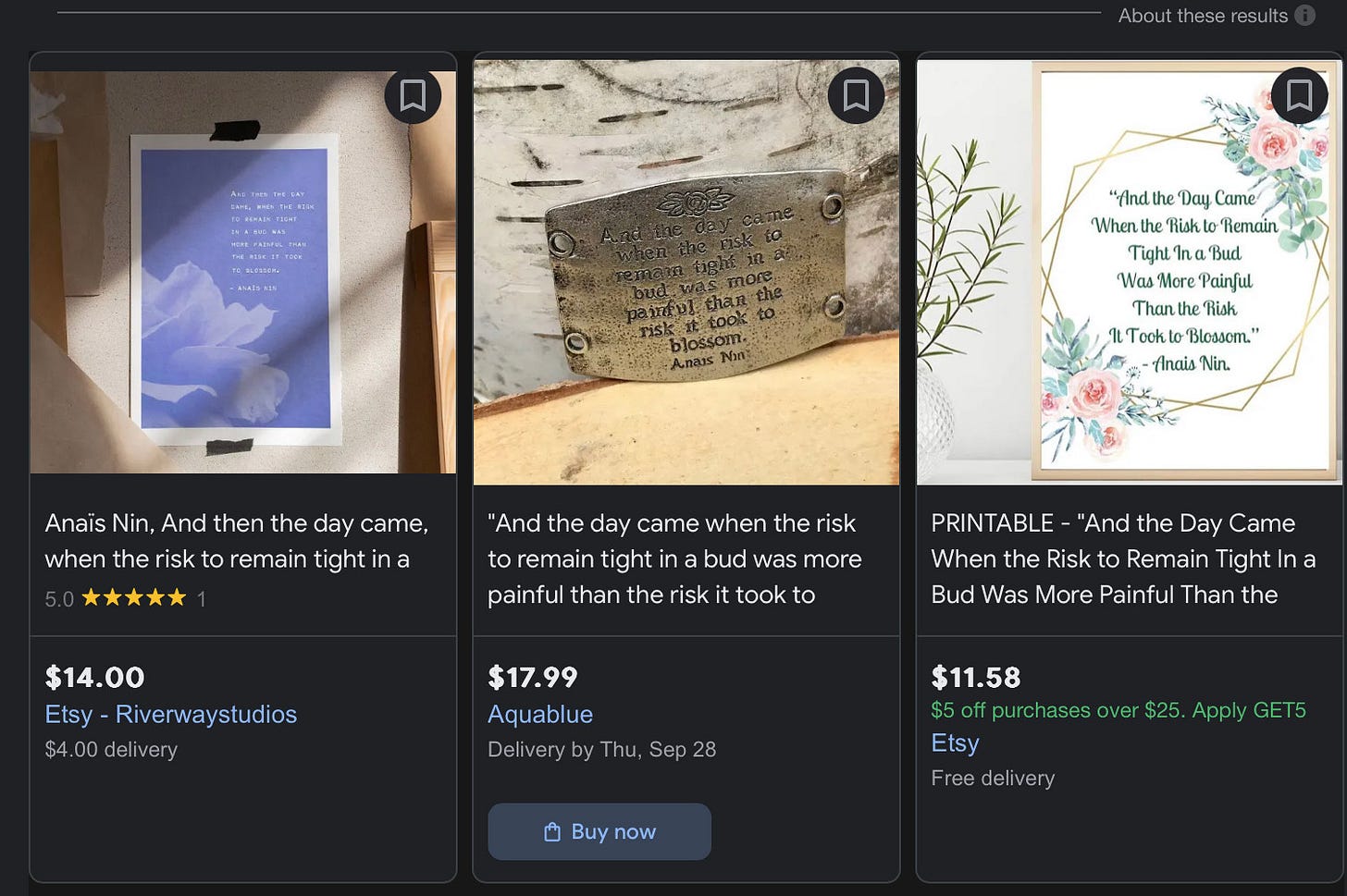
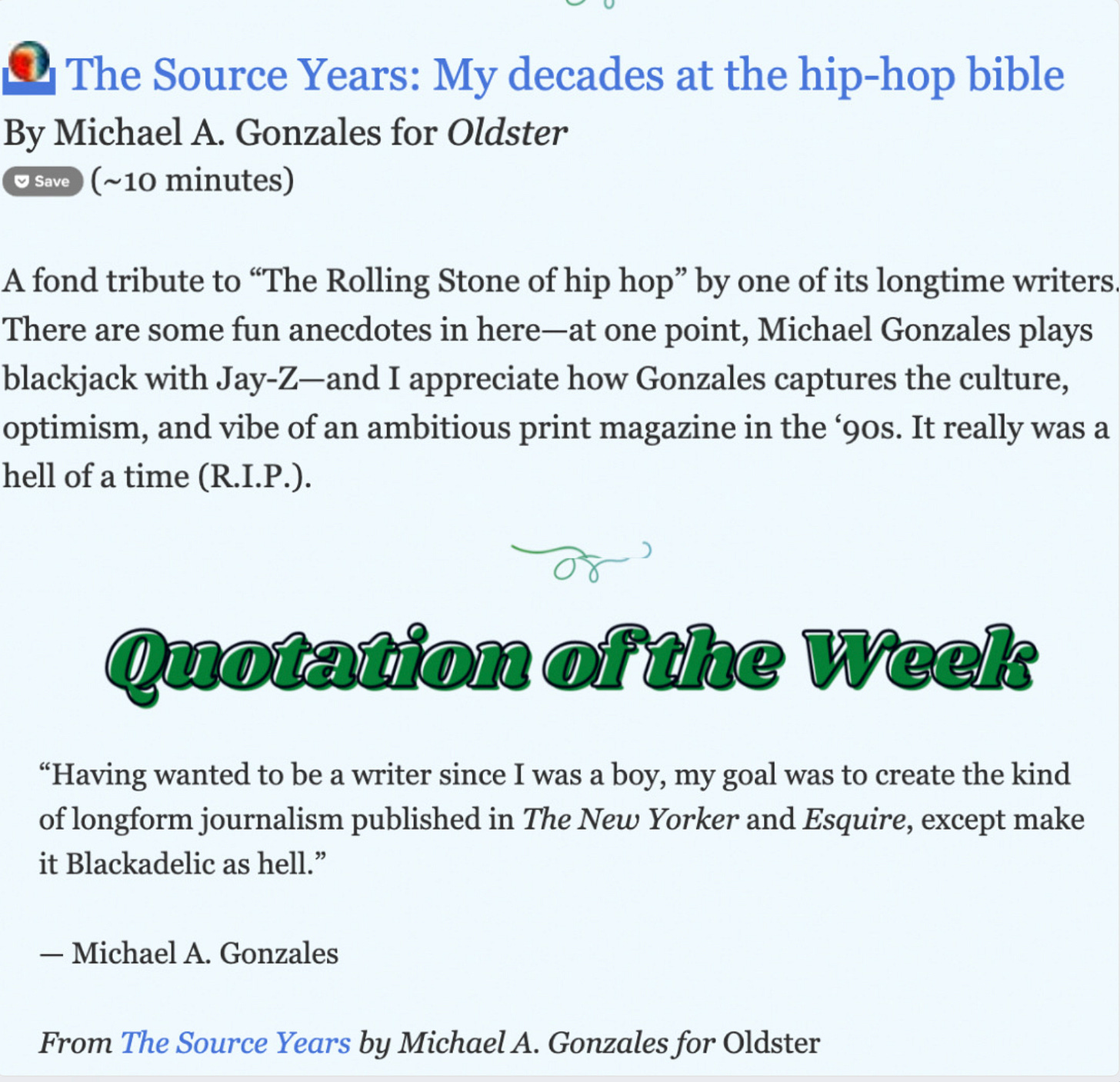
Not that you asked, but I say, Let the pendant be made with attribution to you. You deserve to take credit for your inspiring words! And to make some money, if it proves profitable. Women are encouraged to feel it’s base to take credit or want it, but that’s how patriarchy gets to steal credit for men. You deserve to take up space and to have your words recognized as yours. xo
For what it's worth, I think your name should be on that pendant along with your excellent words. I get why you are struggling but this is one of those moments when you must own all you've accomplished as you've traveled that "circuitous" route towards your writing and all the good things that have flowed from it. Perhaps anyone else could have said it or expressed a similar thought but you were the one who said it in the right way at the right moment. I'm looking forward to making a gift of this to a person who will want to know its origin story. You are the key to that story.